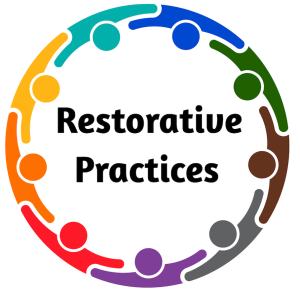Code of Conduct
Code of Conduct
 Students need a safe and positive learning and teaching environment to succeed at school. The Safe and Accepting Schools Act, 2012 (Bill 13) came into effect on September 1, 2012. This legislation strengthens equity and inclusive education principles, and bullying prevention and intervention strategies.
Students need a safe and positive learning and teaching environment to succeed at school. The Safe and Accepting Schools Act, 2012 (Bill 13) came into effect on September 1, 2012. This legislation strengthens equity and inclusive education principles, and bullying prevention and intervention strategies.
Our school has a Code of Conduct based on the belief that discipline begins with creating a positive learning environment for staff and students based on RESPECT. Students are encouraged to make good decisions regarding their own behaviour and to respect the learning environment of their peers. Students are required to respect all adults in our building.
Basic Expectations for Students
- Attend school each day.
- Be punctual.
- Permission must be obtained from the office before leaving the school grounds.
- Act with self-control and respect for others. Hands and feet are to be kept to yourself. Teasing, name-calling and unkind words are unacceptable.
- Respect the belongings of others.
- Keep the school clean and tidy.
- Use acceptable language.
- Work hard and play fair.
- Take part in acceptable games and activities. Toys from home are not to be brought to school (with the exception of balls and skipping ropes or special permission from classroom teachers for theme days). Dangerous objects such as Laser pointers and toy guns are strictly forbidden. Using any object in an unsafe manner is not acceptable. Tackling, wresting and fighting games are prohibited.
To ensure students meet these expectations the school staff will:
- display and communicate the school’s expectations;
- teach the rules and procedures of the school;
- teach any behavioural and social skills necessary for school success;
- encourage and reinforce appropriate student behaviour;
- provide students with feedback and evaluation regarding their behaviour;
- undertake to be good role models;
- provide structure and supervision required for the prevention of misbehaviour; and
- partner with parents to build student success.
Most intervention by staff will be designed to assist students in producing appropriate school behaviour. As such, the school staff may:

- correct students, redirect them, and review required behaviours;
- provide instruction on appropriate student conduct;
- assign special learning projects designed to improve student knowledge and performance related to school behaviour;
- provide guidance and counselling;
- change supervision, structure, procedures and work locations as required;
- utilize problem-solving and resolution strategies;
- require students to write plans for future success;
- arrange mentoring;
- provide students time to regain their self-control and composure;
- engage students in special programs for anger management, social skills, etc.;
- utilize peer counselling and conflict resolution;
- require restitution and/or community service;
- have students make up time lost due to unnecessary absence;
- employ tracking sheets to monitor success;
- make referrals to other personnel or agencies to increase support for students; and
- communicate with parents to increase teamwork and plan joint resolution of problem behaviours.
These interventions may be insufficient for dealing with major and/or persistent misbehaviour. To ensure students understand the seriousness of their actions, and to protect the rights and needs of other members of the school community, the school will impose additional consequences when necessary including:
- Restricted privileges
- Removal from class
- Modified school days
- Formal warnings to students – communicated to their parents (or guardians)
- Detentions
- Imposed restitution
- Confiscation of prohibited items
- Suspension
- Suspension Recommending Possible Expulsion
- Police involvement (with the potential of laying charges)
Important Note:
Professional judgment will be employed regarding the application of consequences to ensure that consideration is given to mitigating factors such as the deliberateness of a student’s behaviour, repetitiveness, competence and the student’s history. Progressive discipline will be used in the application of interventions and consequences as appropriate.
 Translate
Translate